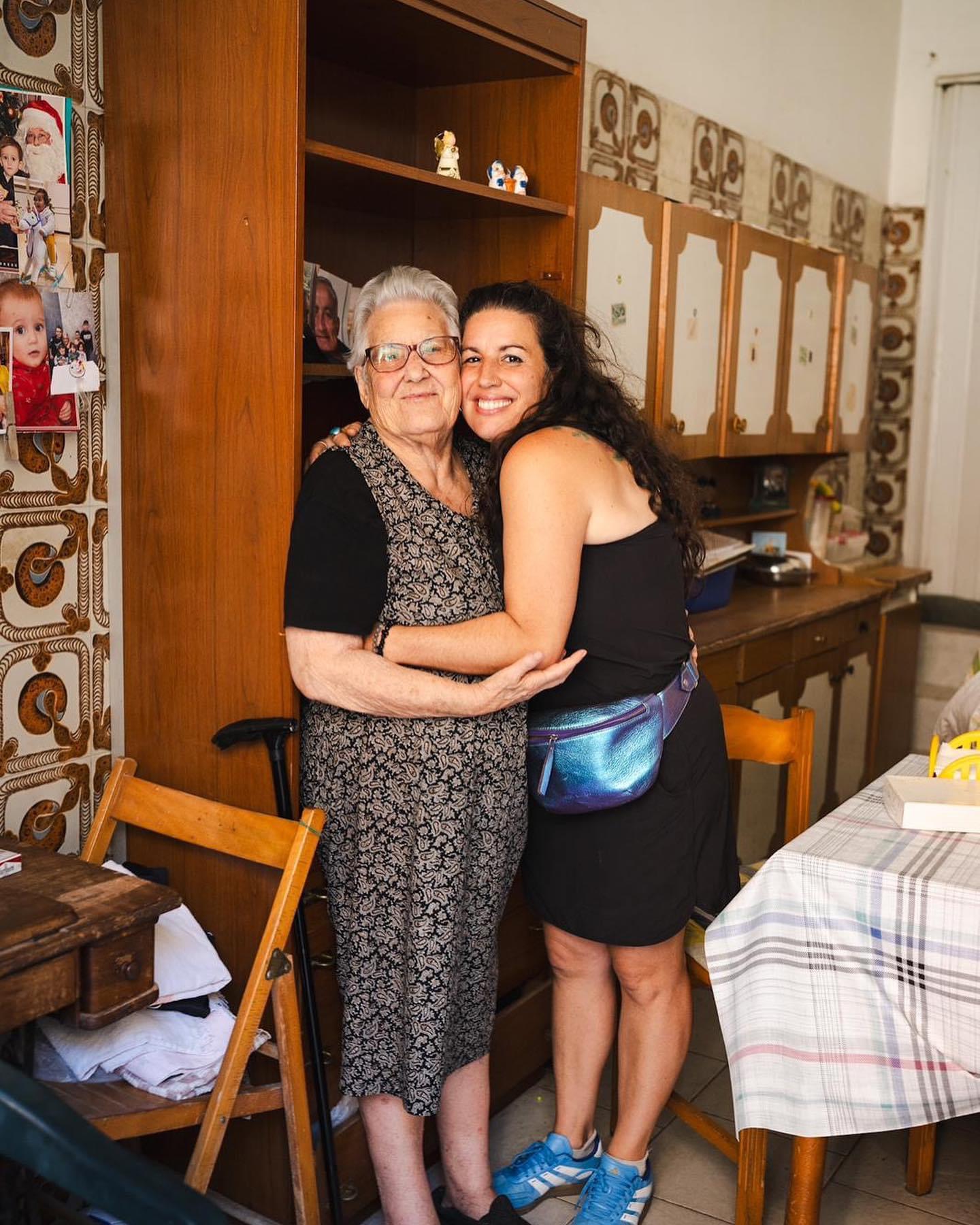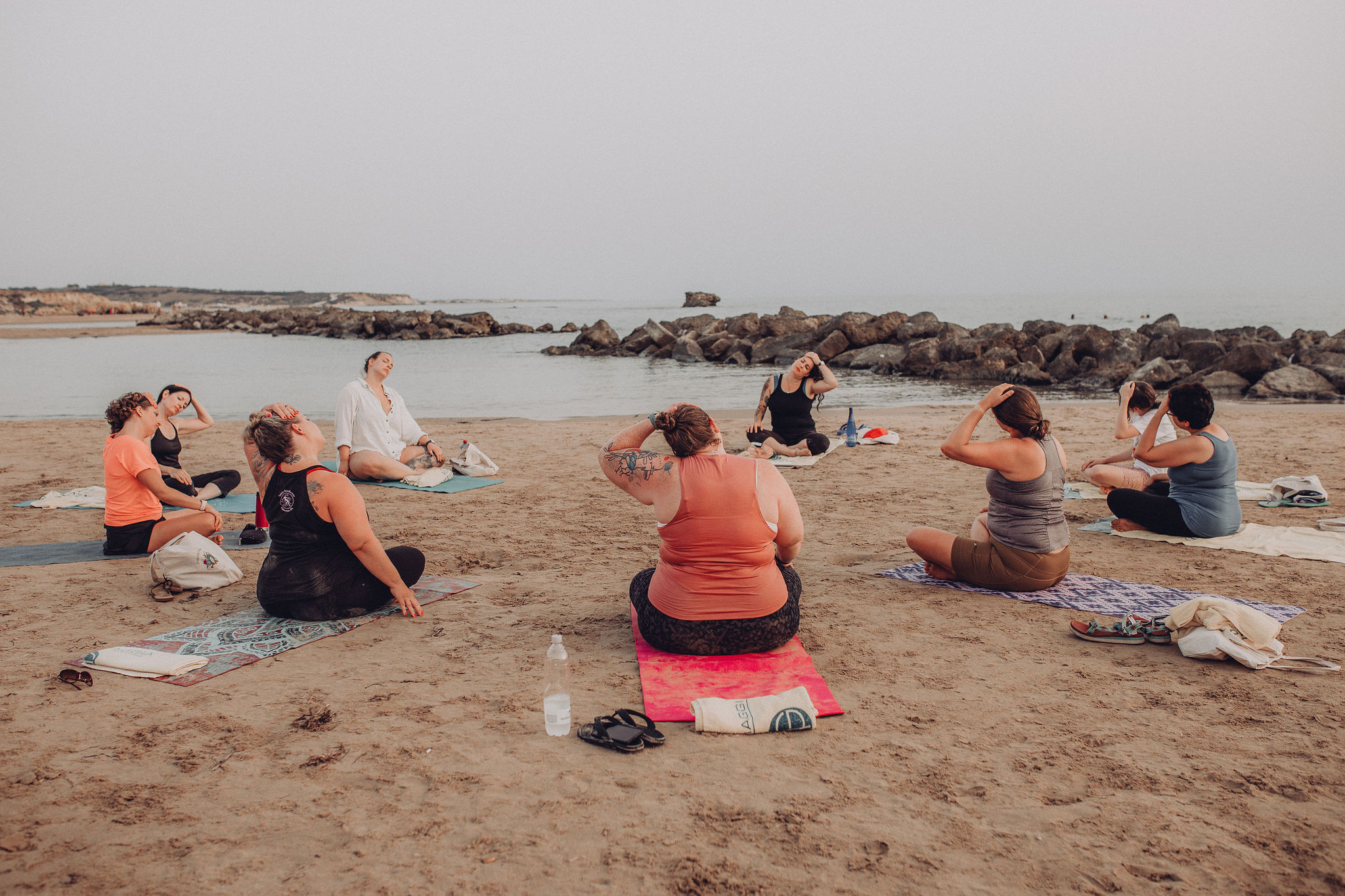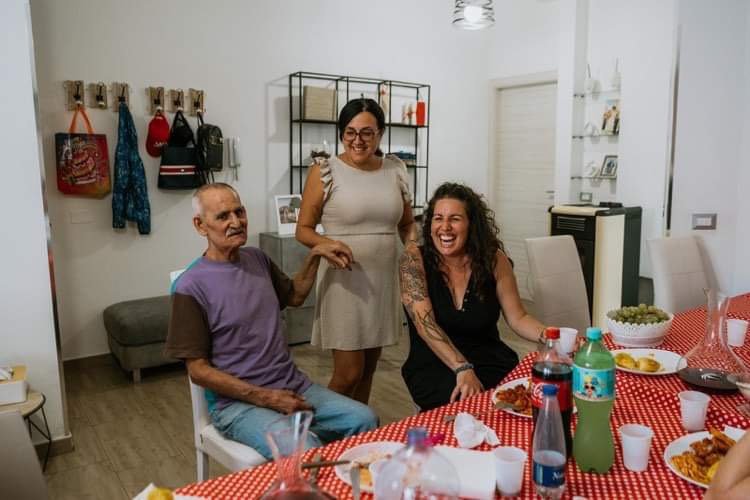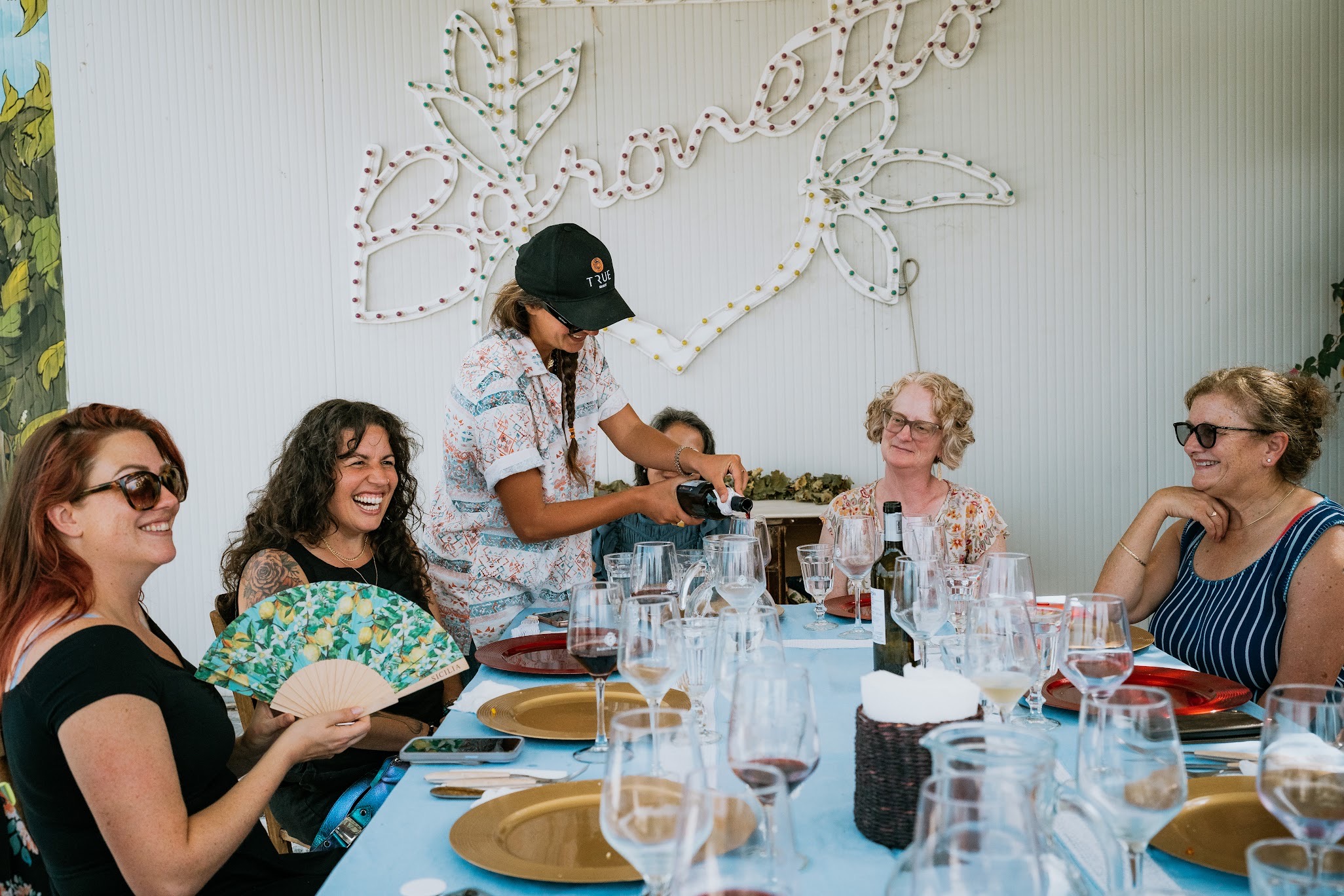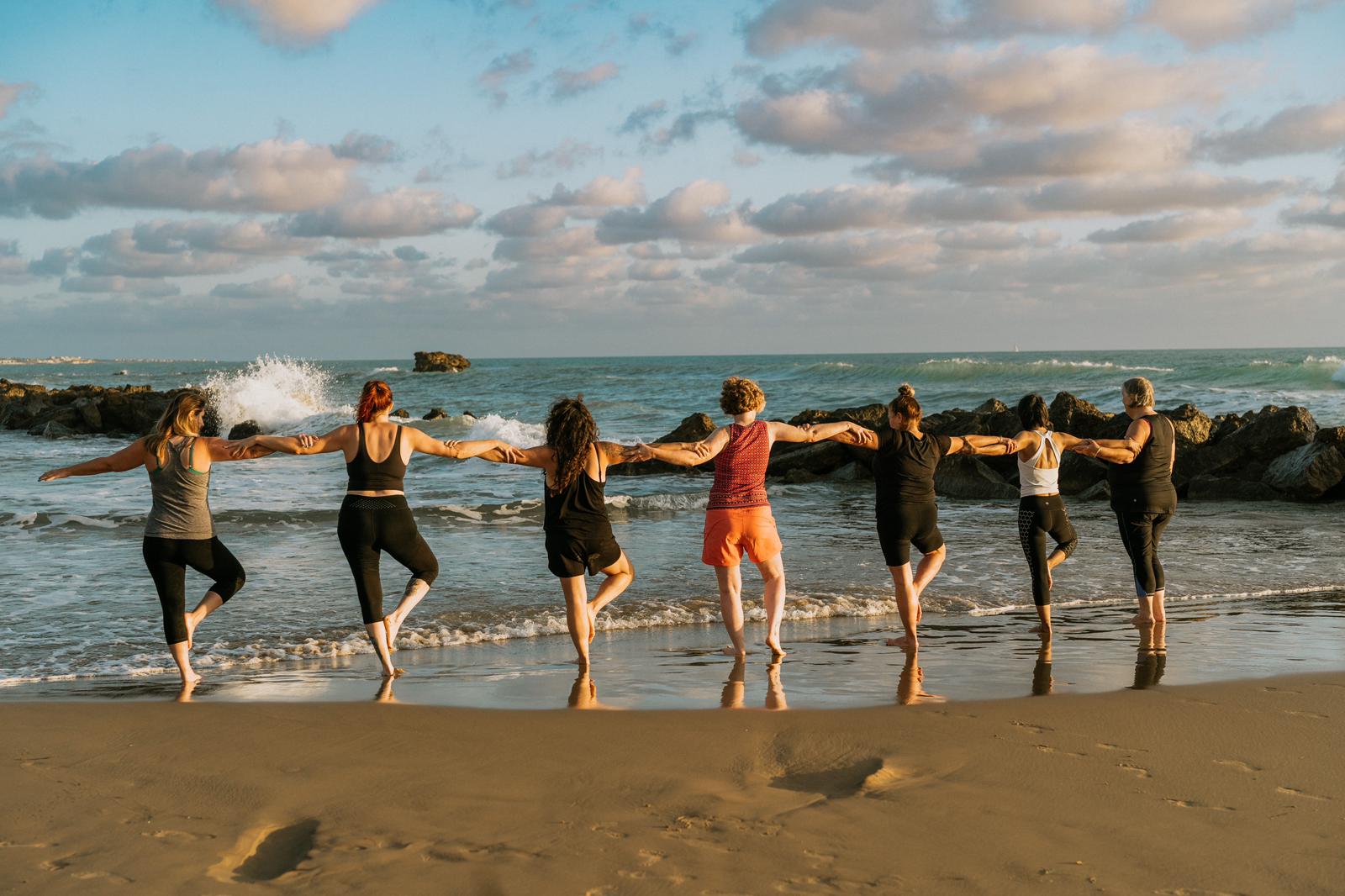Elissa Cirignotta spent much of her childhood traveling back and forth between Sicily. Her father was born and raised in Scoglitti, a fishing village near Ragusa, and moved frequently for work.
After several cross-continental moves, her father was invited to open a Sicilian restaurant in the United States, and that's when the family moved to the U.S. for good. Still, she and her sister summered with their nonna in Sicily until she was about 18.
In 2016, she'd been working in the public education system and had just married. She'd had her longest stint away from Sicily, and when she and her husband returned, she experienced a homecoming and was inspired to embark on a new path.
"I dreamed up this idea to start leading culturally immersive retreats," Elissa says. "I kind of put together different aspects of my skill sets. I wanted to find a way to tie my work to Sicily and bring my family back every year. And then I did it."
Soulful Sicilian Retreats was born with the first selling out in three days. Through each of her carefully curated cultural and wellness-oriented trips to eastern and southeastern Sicily, Elissa invites guests to join her in a celebration of the food, landscapes, tradition, and beauty of the place that continues to stir her soul.
Elissa shared her goals, what sets her retreats apart, memorable feedback, the experience she hopes to deliver, and more.
What were your goals when you started Soulful Sicilian Retreats?
My nonna just turned 91 years old, and she's like a mother to me. And I wanted to see her. I needed to be closer to her.
As we age, we're in touch with our mortality and the preciousness of life. I wanted to carry on her legacy, and I wanted to be near her.
As I started having kids, that carried over. My kids' relationship with my nonna is just so precious to me. It's such a gift that I can give for them to have this experience of knowing these two cultures, knowing her love, and seeing the world from a different perspective.
Growing up as a multicultural child has its challenges. I never quite knew where I belonged. I was bullied terribly as a kid in America because when we moved to the United States, I had a really thick accent that I did everything I could possibly do to hide. I tried to hide all of it.
As an adult, there's a reclaiming of power around it. For me, something that I was so embarrassed about for so long is now such a rich part of my identity and a part of the work I do. It's also now part of healing generational trauma. If you're from Sicily, there's generational trauma there. And so it's been very empowering for me to have this become such a part of who I am.
Nonna and Elissa
What makes your retreats unique?
Since the idea was born, it really has become a passion project. I see so many different kinds of retreats happening in Sicily—more than ever.
I really try to be intentional and mindful when I design my retreats to incorporate locals, traditions, rituals, and what I consider to be the essence of Sicily.
I'm so deeply connected to the culture and the traditions and the land and being stewards of the land and the sea. I come from a long line of fishermen on one side and a long line of land workers on the other side. We were raised where my uncle dropped off fish for our family, Nonno dropped off the produce, and Nonna made the bread for everyone. It was just like a collective taking care of not only the family but the earth and the land and sea.
How do you shape the retreat experience?
Each one is curated differently with a different theme. Sometimes, I have a collaborator I work with, and so they're very intentional.
Almost every meal uses seasonally grown or consumed seafood. One of our chefs is married to a squid farmer. When squid is in season, we highlight his catch of the week. We're foraging and making food from what we forage for some of our meals. We incorporate a lot of herbs. We really try to incorporate the seasonality of it, including when fishing is closed for a month at a time. So, for example, in October, I don't really highlight fresh fish.
I work with local chefs. Sometimes, we have a Michelin-star experience just for fun, but a lot of the stuff is traditional, regional foods that are prepared by my zia or my cousin or people who have been taught how to prepare these things for generations and generations.
I think it's really important for people to enter homes, meet locals, have conversations, and see the traditions behind their meals, why they prepare them, and how they prepare them. It's really special for me and a really special experience for the people attending.
Beach yoga with retreat participants
In what ways do you incorporate wellness and mindfulness?
For our May retreat, we are staying in an 18th-century restored masseria farmhouse in the Sicilian countryside. That's our home base. And every evening, we'll have a custom blend Té Sana. For the first night, it's deep rest. I want everyone to sleep well. The next night, it's their first full day in Sicily, so we incorporate herbs to help find balance in your digestion and detox, as well as grounding. We have one day where it's just decadence all day. And so our Té Sana blend is decadent with licorice and cinnamon and floral notes.
I incorporate herbs into as many things as I can possibly do to support wellness in your traveling journey. I have people coming from Australia and all over the world. It takes a long time for them to get here. So, I really try to create a holistic experience for them where they're supported in their sleep, digestion, and other areas.
There is also yoga. I'm a yoga teacher, and that was, initially, one of the skills I wanted to bring into it.
I was a special ed teacher for a while and then got my master's and worked in the field of special education for a very long time. When I discovered yoga, I started teaching yoga to my special ed students and to the teachers that I was supporting. And it kind of changed the whole direction of my life really in many ways. So, it just felt like an obvious thing for me to include in
transformational Sicilian experiences. It's optional. Not everyone participates, but it's a really beautiful way to balance.
Zio Pietro, Rosita, and Elissa
Share with us a memorable piece of feedback you've received.
I'll tell you a story. My nonna was the first of 18 kids. Of those 18 kids, 11 survived into adulthood. Five of those 11 are blind and deaf, and they all lived together in one home. Only four of them are still alive. And they still live in that home together.
For almost all of my retreats, I have one of my cousins prepare a big family-style, traditional Sicilian meal. My blind and deaf aunts and uncles live across the street, and Rosita, who cooks for us, is their caregiver. They will occasionally walk over and come in, so I let my retreaters know that they might meet them.
If you've never experienced or interacted or communicated with someone who's blind and deaf, it's really an interesting kind of magical experience. We do tactile sign language, so we speak into their hands, and then we have our own kitchen sign language. It's only decipherable among my family and the people who know them.
One time, my uncle was there during this meal with all of our retreaters. Zio Pietro, Rosita, and I signed stories, Zio Pietro shook everyone's hands while the kids teased their uncle, and we all enjoyed pranzo. And as we were walking back, one of my retreaters told me that that lunch pierced her soul.
I was like, "That is the best compliment. I'll take that."
Retreat participants share food and fellowship.
What experience do you ultimately seek to share?
I hope that it has expanded their view of the world and that they feel nourished and taken care of.
Sometimes, you can go on a vacation and feel like you need a vacation from it. I want people to leave and feel like they had one of the best of their lives, that they were fed well and taken care of, and that they didn't have to worry about a single thing unless they chose or wanted to. I hope they feel the warmth and hospitality of Sicilian culture.
People from all walks of life, ages 2 to 73, attend these retreats; the whole political spectrum comes with that. And it's just so important for me to be able to create spaces for healthy, safe dialogue where people can be heard and feel safe. One of my biggest hopes is that people walk away feeling nourished in body and mind, feeling refreshed and ready to create, and that they felt safe in this experience.
If you enjoyed this article, consider subscribing to my newsletter for more content and updates!

